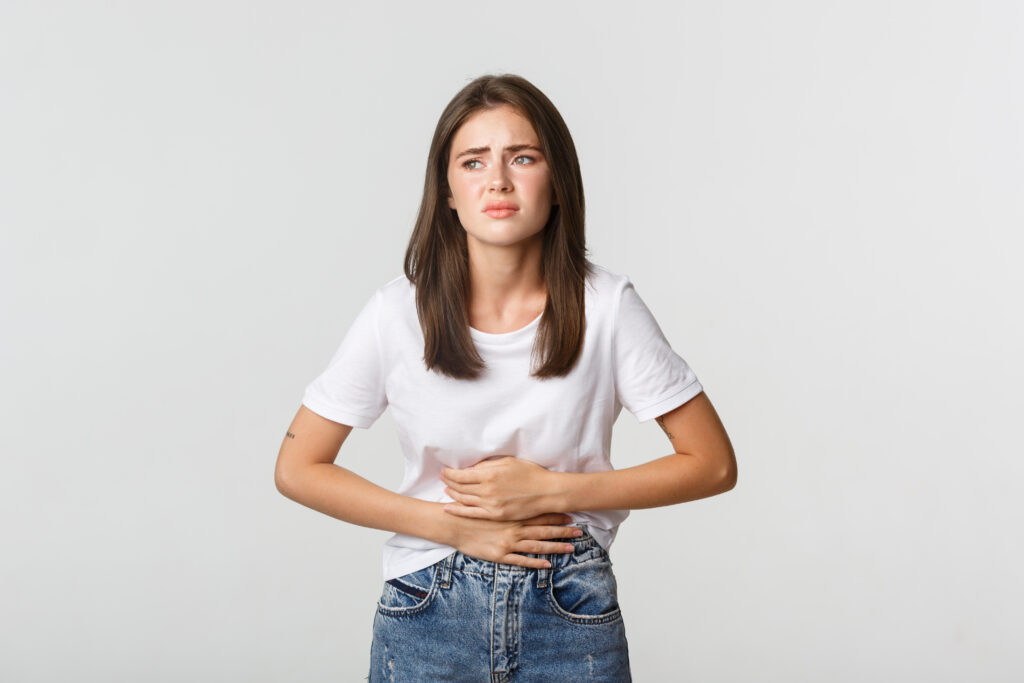Show love to yourself to Deal with PCOD
PCOD or Polycystic Ovarian Disease has become a common occurrence today. You may know at least one woman in your family or social circle suffering from this hormonal disorder. Nowadays, many young women are also contracting this condition. It can be painful and depressing; but naturopathy has ways to deal with it effectively, avoiding surgery in the process.
What is PCOD?
In PCOD, many (poly) cysts get formed in the ovaries. Hormone levels in a woman’s body go awry resulting in facial acne, fluctuating menstrual periods due to irregular ovulation, masculine changes like extra hair growth on the face and body, and infertility. The patient often feels weak and drained, and may also experience painful stomach cramps.
The Cause
What causes PCOD is still unknown, but doctors believe it may be caused by:
- Too much insulin: The pancreas produce insulin to help cells use glucose. Some people are resistant to insulin, so the insulin in their bodies is not used properly. The pancreas must increase insulin production so that cells are not left without the main energy supply – glucose. Over-production of insulin can increase production of androgen, which is the male hormone, in the ovaries. This can lead to drop in ovulation.
- Heredity: If a close female relative in your family has PCOD, there is a greater chance of you contracting it. Researchers are trying to find genes that may be carriers of PCOD.
Symptoms of PCOD
Some of the signs to look out for are:
- Irregular periods: This includes getting your period after a gap of more than 35 days, having less than eight menstrual cycles in a year, going four or more months without getting a period, or extended periods of time with heavy or scanty bleeding.
- High androgen production: Look out for increase in hair on the face and body, severe acne or hair loss.
- Cramps: Severe stomach cramps during menstruation due to cysts formed in the ovaries can indicate PCOD.
- Weight issues: Keep your eyes open for an increase in body weight and subsequent trouble losing it despite your best efforts.
- Infertility: If you are having problems in conceiving a baby, visit a doctor to rule out PCOD.
- Depression: This is a common symptom most physician will ask you about while screening for PCOD.
Possible Complications
PCOD, if not managed, can further lead to other ailments like type 2 diabetes, elevated blood pressure, high triglyceride count, low HDL (‘good’ cholesterol) levels, inflammation of the liver due to fat deposition, depression, infertility, or uterine cancer. The soul- draining nature of PCOD and its numerous possible complications make it advisable to prevent and treat PCOD at the earliest.
Nature shows the way!
Embrace yourself with love and promise to take care of your body and soul with the right diet, exercises and therapies.
At NatureHealz, we have helped several women in treating the condition as a by-product of better lifestyle management and a mix of right natural therapies. Avoid surgery and its possible complications by taking these steps:
- Keep your weight in control – Optimum weight levels help to reduce acne, decrease insulin levels, and improve fertility.
- Lose weight if you are overweight – Even a 5 percent reduction in your body weight can significantly improve your condition and alleviate some symptoms. Though PCOD makes losing weight tough, you can achieve it by exercising enough, reducing your stress levels, and eliminating processed carbohydrates and sugary foods from your diet.
- Change your diet – Stop eating bread, biscuits, pizza, cake, and refined flour (maida) products. Instead, opt for whole wheat chapatis / bread and brown rice. Eat more proteins in the form of lentils (dals) and beans such as moth beans, moong, and kidney beans.
See that your body gets essential fatty acids in the form ghee, coconut oil, or fatty fish. Eat foods rich in magnesium, chromium, and zinc, such as peanuts, almonds, flax seeds, pumpkin seeds, and spinach. Move towards a diet rich in vegetables, fruits and herbs like fenugreek (methi), cinnamon, and cloves.
When you are making a choice of what to eat- ask yourself whether what you eat will feed the disease or fight it?
- Top up your Vitamin D – Ensure you get enough natural Vitamin D from sunlight.
Show some Love
A lifestyle in harmony with nature can go a long way in reducing the symptoms of PCOD and improving the condition of patients. Right from detailed diet advice to various therapies, there is a range of treatments to bring you relief. Some of the popular therapies offered are:
- Hydrotherapy: Harnessing both the curative power and soothing nature of water, this therapy helps the body recover from weakness and blood loss. Additionally, swimming strengthens muscles while helping you lose fat.
- Yoga: Yoga is the best holistic program that relives pain and brings the menstrual cycle back to its proper rhythm.
- Massage therapy: A team of trained and expert massage therapists ensure your muscles relax, pain and stiffness disappears, stress gets released, and your body relaxes. After all, without a healthy and receptive body, no treatment can work.
- Mud therapy: This therapy keeps bleeding in check, relaxes the muscles and improves blood circulation.
If you are any one you know if suffering from PCOD or any of its symptoms, know that the body is begging to make a change. Take the first step to free your spirit from the bondage of PCOD. Stay Natural and enjoy your journey as a woman to the fullest!

